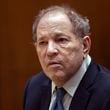The delegate-by-delegate phase of the battle to deny Donald Trump the Republican nomination started this weekend in Georgia on a subdued note.
No punches were thrown or tables turned at Cobb and Fulton County GOP meetings held Saturday to pick delegates for the Republican National Convention in Cleveland.
Instead, the gatherings were punctuated by public calls for party unity – and a far quieter shadow campaign by the well-organized supporters of Texas Sen. Ted Cruz and other Trump foes to seek out delegates willing to leave him at the convention.
Similar meetings were held across the state Saturday as part of a series that will lead up to the election of at-large delegates, sought-after spots now even more coveted in this unpredictable race. As the possibility of a convention battle has grown, so has the focus on the men and women who could ultimately decide the Republican presidential candidate.
The 40 delegates Trump won in Georgia are required to vote for him on the first ballot, but most will be free to spurn him in successive rounds if he fails to lock up the nomination.
Anti-Trump forces, fearful that the billionaire would ultimately lose to a Democrat in November, hope to block him from reaching the 1,237 delegates he needs to lock up the nomination and persuade as many of the party delegates as they can to support an alternative in later rounds of votes.
In the Fulton and Cobb county meetings , there was little overt campaigning from supporters of Trump, Cruz and Ohio Gov. John Kasich, the three contenders left in the Republican race. The dozens of delegates and alternates selected for the next round — a district convention next month — were graded on their participation in campaigns and party events.
“When we went through the interviewing process, we did not ask one person who their candidate for president was, because we did not want to know,” Toria Morgan, chairman of the Cobb nominating committee, told the crowd. “This is not a candidate’s convention. This is a Republican convention.”
Fulton’s gathering opened with a warning from Bob Shaw, a longtime local GOP organizer and former state chairman, who launched a not-so-subtle critique of Republicans who flirted with the idea of a third-party ticket. A Thursday meeting of conservative activists in Washington mooted the possibility of former Texas Gov. Rick Perry or another contender joining the race.
“The people who say, ‘If so and so wins, I’m not voting’ – well, that is the most foolish thing you can do,” said Shaw. “Don’t claim to be a Republican if you’re going to sit idly by in the election. Because you’re going to put her in the White House.”
The her, of course, was Democrat Hillary Clinton.
Indeed, an increasing number of prominent Georgia Republicans are accepting, if grudgingly, that Trump is likely to be their nominee. Lt. Gov. Casey Cagle, an early supporter of Jeb Bush’s failed campaign, said “it would be very difficult to rob” Trump of the nomination even if he fell just shy of the number needed.
And former U.S. Rep. Jack Kingston, who has endorsed Cruz, praised Trump at the Fulton meeting for tapping into the anger against “pampered special interests” like Occupy Wall Street and the “college students walking around with cell phones feeling oppressed.
“They’re all quality candidates, and I’m going to support whoever it is,” said Kingston. “And I’m going to do it very enthusiastically.”
Privately, though, Trump’s opponents see the 1,237-delegate mark as the final dividing line to keep him from wresting control of the Republican Party.
Trump leads Cruz by about 250 delegates and Kasich by more than 500, but Cruz and Kasich hope to win delegates in vote-rich states like California and New York and are launching new offensives in Wisconsin, Montana and South Dakota.
Randy Evans, a Republican National Committee member from Georgia, said Trump is likely to enter Cleveland with 75 to 100 delegates short – unless Kasich drops out. If the race is whittled down to a two-man contest, Evans said, the party seems destined to end up with a presumptive nominee by the July meeting.
Evans serves on the RNC’s rules committee, which means he had a hand in drafting the party regulations that will be in the spotlight this summer.
“It’s not that I know some inside secret,” Evans told the Cobb delegates. “It’s that I know how the process that I designed actually works.”
At the Fulton County meeting, where activists voted on which delegates to anoint to the first in a series of party meetings, the calls for unity largely drowned out potential strife.
A row of Trump supporters, mostly newcomers to the party with “guest” stickers, sat in the back of the auditorium with an eye on challenging delegates. But many were gone long before they had a chance to try to be counted. None were successful.
“We just don’t know the rules,” said one of the Trump supporters, among several interviewed who declined to speak publicly.
As they trickled away, GOP operative Seth Weathers, a Trump ally who briefly ran a super PAC for the billionaire, said the fact that they showed up spoke volumes.
“It shows the enthusiasm. It shows that Donald Trump is bringing in the blue-collar voters who haven’t been included,” said Weathers. “We’ve been trying to get those blue collar voters involved. Now they’re getting involved, and we’re not sure if the party will let them.”







